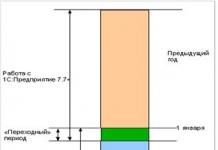Kadyrov decided to remind who is in charge here. He had already gathered a million-strong rally in Grozny after Charlie Hebdo. In Chechnya, houses were burned and relatives of people suspected of terrorism were driven out. Its popularity is growing everywhere. Residents of the Kaliningrad region have already turned to him for help and asked to include their village in Chechnya. Kadyrov was asked for help by market workers in Kaluga, who are being harassed by local bosses.
Kadyrov is cool and does what he wants. And Chechnya, formally remaining a part of Russia, is actually a state within a state. Now Kadyrov has again gathered a million people in Grozny. And I want to draw your attention to several circumstances.
A million is not a million - but there were really a lot of people! Rallies for Putin and United Russia in Moscow on Poklonnaya Hill are a pitiful bunch compared to what we see in Chechnya. At the same time, they prepare for putings for more than one day, not one week, put under arms all state employees in a row, pay money, threaten trouble, promise time off, show on TV.
It took Kadyrov a couple of days to gather ten times as many people. Federal television did not help him in any way, I think no one was paid money there. They just said that you need to come there at such and such a time - and that's it! In addition, I am sure, thousands of people wanted to come quite voluntarily.
Chechnya is not the only Muslim region. But the rally took place in Grozny. Not in Kazan, not in Ufa, not in Dagestan or Ingushetia. Everyone went to Grozny, specifically to Kadyrov. That is, he mobilized the entire Caucasus, and in fact became the leader of all Muslims in Russia.
And the day before, Muslims, led by Kadyrov's people and with the participation of Chechens who came directly from Grozny, blocked a street in the very center of Moscow for several hours. They were not arrested, they were not beaten, they were not seized indiscriminately and they were not thrown into monkey houses. The police patiently waited for the protesters to throw out their emotions, speak out and disperse.
No one except Kadyrov can organize and hold an unauthorized action in the center of Moscow without the slightest consequences. And note: neither a honey fair, nor a bike ride, nor a speech by reenactors for some reason was held at the Myanmar embassy. And this rally did not interfere with anyone.
It is obvious that the Moscow government looks idiotic. She can do nothing with Kadyrov. And he is able to instantly mobilize any number of people. He can calmly say that he is "against the position of Russia", as if it were a question of another state.
President Putin has the option to dismiss any governor "due to loss of confidence." Anyone but one. This only head of the region is so great that he himself will send Putin "due to the loss of confidence."
Writing under a pseudonym wotton_henry .
***
In the Russian Federation, there is still universal military duty. Those. in the event of hostilities, can everyone be called up without the right to refuse? But part of the population does not support the KRP.
Yes, but let's start with the fact that the defense of the country is not only protection from attackers, but also all sorts of measures that are taken to prevent such an attack. In peacetime, events are constantly held that are prepared in advance.
A) protection of the state from armed attack;
b) meeting the needs of the state and the needs of the population in wartime.
This is called mobilization training.
At the same time, one should not confuse mobilization training with mobilization. Those. everything that was done in peacetime was preparation, and when it became hot, we are already taking measures to transfer everything that is possible to the organization and composition of wartime. This is mobilization.
During the existence of the Russian Federation, new groups have appeared among men: deviationists and those who cannot serve the Motherland due to the complexity of their convictions.
Let's look at the situation in detail. In relation to the country's defense capability, the entire male population can be divided (as I see it) into several groups:
Children
- conscripts
- military personnel
- stock
- retirees
- dodgers
 The backbone of the Armed Forces in peacetime is military personnel. Conscripts (passing military service by conscription) and contract soldiers (passing military service under the contract).
The backbone of the Armed Forces in peacetime is military personnel. Conscripts (passing military service by conscription) and contract soldiers (passing military service under the contract).
The initial military registration is carried out from the age of 17. Until this age, the child must prepare: go in for sports, develop patriotism in himself, and so on. Then he is "considered" and is expected to come of age.
From 18 to 27 years old, a young man is considered a conscript. In the event that he is or should be on military registration, but is not yet in the reserve. Accordingly, the legislation provides for some categories that are not called up, as well as deferrals. In all other cases, if the conscript did not come to the military registration and enlistment office when the deadline came, then article 328 of the Criminal Code applies.
After service (both by conscription and by contract), a serviceman is transferred to the reserve, except for those who have been expelled from higher educational institutions and those who have reached the age limit. The age, which is the limit for being in the reserve, looks at the position held, rank, and so on. Those who have reached this age retire, and are (theoretically) not involved in active hostilities.
Accordingly, the following categories of citizens fall into the reserve:
- "boots", i.e. conscripts who have served;
- contractors dismissed from military service with enrollment in the reserve;
- "jackets", i.e. graduates of civilian universities with a military department;
- those who had an exemption from conscription;
- those who had delays;
- those who "ran" before the age of 27;
- alternatives;
- women who have a military specialty;
- Dismissed from military service without military registration and subsequently put on military registration in military commissariats (this, for example, in the case of a criminal record or foreign citizens).
Those. We have EVERYTHING in stock, with a few exceptions. A citizen in the reserve will, at certain points, undergo a medical examination to see if something has changed in his health that makes him unfit for military service.
What did the authors of this hotel and tourism promotion do? They molded a selection of flavors and put it on the only massively promoted "heavy links" landing page. A searching target client will find on this page, more precisely, he will surely find, only a suitable tourist option for him. And it is very effective for conversion.
The fact is that the analysis of health is a complicated thing. A significant number of citizens of the Russian Federation of draft age are aware of themselves as carriers of the queer philosophy. Let's imagine two real situations:
A) A certain Miloslav Tarakanov, realized his complex gender identity, paid for the operation and the hormonal course, and now lives with female sexual characteristics. And according to the passport it's all the same.
B) A certain Slava Revyakina felt a completely masculine gender in herself. She recognizes herself as a man. Then she underwent hormonal therapy, maybe surgery. And he wants to serve in the ranks of the Russian troops.
Let's start with Revyakina, as with a simpler situation. Suppose that there was no operation, then Slava simply goes to the nearest military registration and enlistment office and says that she wants to serve madly. As an ordinary citizen (including a foreign one), who has a similar desire. The military registration and enlistment office will conduct a medical and professional-psychological examination, on the basis of which a decision will be made as to whether Ms. Revyakina is fit for military service. There are four options for validity, and if you do not fall into the fourth category, then they take you on a trial period. But this is already a theory of contract service.
Now, if the operation was, and the male gender is now confirmed by the primary sexual characteristics. Of course, I have not come across this yet, but it seems like when you change sex, you should get a new passport. Although the law does not provide for a change of passport when changing sex. Only with significant changes in appearance. In any case, the attitude towards mobilization activities depends on the documented gender. If you are a man on your passport, then you are automatically entered into the lists of those liable for military service or reserves. And all laws work for you as for people who are a man from birth.
Now Tarakanov. I doubt that in such a complex life situation, he (she, it) does not go to the passport office and does not become Miloslava. Somehow it's not logical. Again, we live in Russia, and if he does not have a female passport, then according to all mobilization lists, he remains a man, to whom all rules and obligations apply. Those. if mobilization, then Tarakanov will be called to the military registration and enlistment office for examinations and other suitability, and instead of him a blonde with the third number will come, then the commission will immediately mark such a character. At the very least, psychological unsuitability, I think.
Yes. Now we are closer to understanding. Back to mobilization?
Let's. Here is the mobilization announced in the country. From this moment on, citizens registered with the military are prohibited from leaving their place of residence without the permission of the military commissariats. Those. we sit and wait.
Citizens who are in the reserve, who are not entitled to a deferment from conscription for military service for mobilization, are subject to conscription for military service (there are such deferments). Because there are more reserves than the required number of military personnel, then some of them may be sent to work in civilian positions.
When mobilization is announced, military personnel continue to serve, only women with children under 16 are allowed to go home.
Citizens who have an unexpunged or outstanding conviction for committing a serious crime are not subject to conscription for military service for mobilization.
A deferment from conscription for military service for mobilization is granted to citizens:
Reserved citizens (this is when government agencies booked a person to work at their place during the war);
- recognized as temporarily unfit for military service for health reasons - for up to six months;
- who takes care of the father, mother, wife, husband, brother, sister, grandfather, grandmother, adoptive parent, (there must be a conclusion or group I disability), as well as family members who have not reached the age of 16, in the absence of others persons who should support them;
- who has 4 or more dependent children (female citizens - one child);
- whose mother, in addition to them, has 4 or more children under eight years old, and does not have a husband;
- and, of course, members of the Federation Council and deputies of the State Duma.
(and is this decree outdated by date?).
The Promissory Note Regulation has been in force since 1937 and nothing... And this is only 2002.
Judging by the opposition procession "March of Peace" and so on. among the citizens of the Russian Federation there is a significant group of citizens who are not morally ready for conscription. Many of them also have dual second or even multiple citizenship. What will happen to them? Concentration camps? Expulsion? Penal battalions?
As the Constitution says, the fact that a citizen of the Russian Federation has the citizenship of a foreign state does not relieve him of the obligations arising from Russian citizenship. They will call everyone, and already in the military registration and enlistment office they will determine who and what to do next. This is not only about multi-citizens, but in general about everyone who should be called up for mobilization. If someone, as you say, is not mentally ready to be called up (which is beyond my understanding), then the obligation to appear at the military registration and enlistment office is enshrined in the law "On mobilization training." If you don't show up, you're breaking the law. If you break it, you should be punished. For those who are interested, the punishment for any failure to fulfill military registration duties is a warning or a fine of 100 to 500 rubles.
In other words, camps, expulsion and other penal battalions are wishful thinking.
What to do with this paragraph - I do not understand yet. Not included in text.
If God forbid, mobilization, then all the recruiting things that someone left in the past, resume again. With some restrictions. Above.
Also released:
Booked (see above) citizens;
- employees of the internal affairs bodies, the State Fire Service, institutions and bodies of the penitentiary system, bodies for controlling the circulation of narcotic drugs and psychotropic substances and the customs authorities of the Russian Federation;
- civilian personnel of the Armed Forces and bodies from the previous paragraph;
- serving aircraft (helicopters), airfield equipment, rolling stock and railway transport devices;
- floating composition of the sea and river fleets - during the navigation period;
- those who are engaged in sowing and harvesting - during the period of such work;
- teachers;
- full-time or part-time students in educational institutions;
- part-time students, only for the period of passing the intermediate and final certification, preparation of the thesis;
- citizens dismissed from military service - within two years from the date of transfer to the reserve;
- who has 3 or more minor children;
- who has a deferment from conscription for military service;
- citizens staying outside the Russian Federation;
- and where without: members of the Federation Council of the Federal Assembly of the Russian Federation, senior officials of the constituent entities of the Russian Federation
- alternatives.
I remember that in May 2013, RBC wrote that deputies were going to restore women's rights to military service (http://top.rbc.ru/society/28/05/2013/859409.shtml). What is at the moment?
Now the law clearly states that male citizens are subject to military service by conscription. And according to my information, now there is no bill that would change this provision. Women are not taken to the camps. And women who are not in the reserve are suitable for contract service.
In addition, any citizen making a career or business may suffer significant damage to his affairs in the event of a "preventive" call for training camps.
From two months every three years, what can be affected? In addition, everyone can be called to the training camp for no more than 12 months. Of my friends, only one was taken to the training camp, he was so happy, there’s nothing wrong there ...
Thanks for the facts.
Z.Y. It is known that Orthodox church rules do not allow murderers of any kind into the clergy. I believe this means that the priests of the Russian Orthodox Church will not be able to participate in hostilities with weapons in their hands. Those. The Russian Orthodox Church will demand special status in the army for its priests.
Our state is secular. And initially you are a citizen, with all the duties and rights, and only then a church employee. And I think that the demands of statuses in peacetime and the mobilization of priests are two different things. In addition, I have already mentioned four categories of fitness, of which only the fourth completely excludes service. There are many reserves, no one will give the first category to everyone. It is necessary to leave someone for the second wave. And on the third
Is there a list of religious organizations whose representatives will take on the role of inspirers on the battlefield in the event of war?
I have not come across such lists and a cursory search for information did not turn up anything. I doubt it's that open. But something tells me that many people will be at the head with banners. All our wars are sacred.
Thanks again for a meaningful discussion. I hope there will be more.)
Z.Y.The photograph of the works served as an illustration for the text.
Mobilizations have been continuously developed ever since.
Mobilization can be general, carried out on a statewide scale with the aim of bringing the armed forces to full combat readiness and transferring the entire industry and infrastructure of the state to martial law, and private, which can be carried out both on a separate territory and in order to increase the combat readiness of the Armed Forces or its individual formations (associations, connections, and so on).
All this made it possible to mobilize in Russia as soon as possible, and already in August 1914, the Ground Forces of the Russian Armed Forces began offensive operations. The mobilization of the state required the tension of all services and departments of the empire and was generally positively assessed by the All-Russian Emperor Nicholas II, who even established the medal "For the work on the excellent implementation of the general mobilization of 1914".
It became clear to everyone that it would not be possible to avoid war with Germany. Therefore, on the same day, July 17, Tsar Nicholas II signed a decree on general mobilization.
Losses of the Armed Forces of Russia.
By the beginning of the Second World War, mobilization began to be carried out covertly in order to gain an advantage over the enemy before he could mobilize his armed forces.
Place of mobilization in preparation for war[ | ]
Mobilization is an integral part of the strategic deployment, which includes:
- the transfer of the armed forces from a peaceful position to a military one (mobilization proper);
- operational deployment of troops (forces) in theaters of military operations;
- strategic regrouping of troops (forces) from the interior regions of the country to theaters of military operations and between them;
- deployment of priority strategic reserves.
The main purpose of strategic deployment is the transfer of armed forces from a peaceful position to a military one (with mobilization), the creation of groupings of the Armed Forces in theaters of military operations and in the interior of the country for an organized entry into the war, repelling enemy aggression and successfully conducting the first strategic operations of the initial period of the war.
Often, strategic deployment is confused with operational deployment, which is also an integral part of strategic deployment and is carried out to create and build groupings of troops (forces) in theaters of military operations to repel aggression and conduct the first operations. The main activities carried out as part of the operational deployment:
- strengthening reconnaissance, forces and means of combat duty and combat service;
- the occupation of lines, positions and designated areas by troops and cover forces, air defense forces and means, artillery, fleet participating in fire strikes;
- redeployment of aviation to operational airfields;
- deployment of the rear of fronts, fleets, armies, corps, as well as forces and means of technical support;
- the occupation of defense zones (exit to operational areas) by troops of the fronts, individual armies, corps of the first operational echelon;
- advancement and occupation of concentration areas (defense lanes) by troops of the fronts of the second operational echelon, reserve;
- creation of territorial defense within the appropriate boundaries.
Mobilization consists of:
- in staffing the personnel of the army, aviation and navy up to full wartime staff;
- in resupplying troops with military equipment;
- in replenishment of the material part, that is, uniforms, weapons and equipment;
- in the formation of new parts of the troops, departments and institutions necessary for the duration of the war
- in resupplying troops with equipment and other means of transportation.
For mobilization, it is always necessary to have in the reserve of the armed forces such a number of military personnel that would be equal to the difference between the states of peacetime and wartime. In the places of mobilization, it is necessary to have stocks of materiel and military equipment in constant readiness for recruiting units. The first is achieved by the organization of the mobilization reserve of the armed forces, the second - by the arrangement of emergency reserves and the creation of reserves of equipment. The ultimate goal of mobilization is to gain an advantage over the enemy in the combat readiness of troops (forces) from the very beginning of the war. Hence its main condition - speed: all plans for mobilization deployment must be drawn up so that the armed forces have the opportunity to deploy in the shortest possible time. Mobilization measures are carried out in an atmosphere of high secrecy, since they largely determine the operational plans for the initial period of the war. The basis of all mobilization measures are calculations, periodically checked and renewed and reduced to systematic mobilization plans, also periodically updated. The distribution and sequence of actions for mobilization are set out in special instructions, where the entire course of the mobilization of each unit is accurately indicated by day. Any responsible person should be fully aware of his duties in the event of mobilization and, upon receipt of appropriate orders, immediately begin to fulfill them, without asking for any instructions or explanations.
The example of a carefully and comprehensively prepared and successfully carried out mobilization was given by Prussia in the 1870s. Mobilization is general and private, that is, it does not concern the entire territory of the state and not all the armed forces. In order to actually check the mobilization readiness, sometimes trial and verification mobilization is carried out.
Permanent mobilization[ | ]
Unlike mobilization, which is carried out before the start of the war and, in some cases, is the reason for it, permanent mobilization is carried out during the entire war, or part of it. An important resource of this mobilization is the contingent of civilians, due to the natural course of time reaching military age.
General mobilization
Polish mobilization 1939.
Mobilization (mobilization deployment)(fr. mobilization, from mobiliser- set in motion) - a set of measures aimed at transferring the army and state infrastructure to martial law. For the first time the word "mobilization" was used to describe the activities carried out by Prussia in 1850-60. The theory and methods of mobilization have been continuously developed since then.
Mobilization can be general, carried out on a statewide scale with the aim of bringing the army to full combat readiness and transferring the industry and infrastructure of the state to martial law, and private, which can be carried out both on a separate territory and in order to increase the combat readiness of the army or its individual connections.
Mobilization plan- a document of particular importance, which spells out mobilization measures and the procedure for their implementation. It is inextricably linked with the Strategic Deployment Plan of the Armed Forces. Both documents, as a rule, are prepared at the General Staff and approved by the country's top leadership.
Story
Before World War I
The problem of solving mobilization tasks arose with the introduction of universal military service in most developed countries at that time. The mobilization governs the general conscription, which was first held during the French Revolution. Since then, technological progress and the development of social institutions have had a serious impact on the practice of deploying troops. Such changes were the railways, which allowed the transfer of large numbers of troops over long distances in a short time; a telegraph that provides communication between territorial military structures and ensures coordination of the implementation of the mobilization plan; universal conscription, which allows to have a large trained reserve in case of war.
Administrative actions on mobilization in Germany, Austria, and France are concentrated in corps districts, with each corps commander independently directing the mobilization of his district; executive actions are assigned in Germany and Austria to the administrations of landwehr districts, in France - to the administrations of regimental districts. In Russia, due to the peculiarities of the recruitment of the army, the extremely uneven deployment of troops and the complete discrepancy between the needs of M. and the sources of replenishment (the sources of replenishment are in the center and in the East, and the bulk of the troops are in the West), administrative actions are concentrated in one central institution - the main headquarters , under which there is a special committee for preparing data for M. Executive actions are distributed as follows: accounting, conscription, distribution and dispatch to the troops of reserve ranks and militia warriors of the first category are carried out by district military commanders with the assistance of local police; horses to be handed over to the troops on the basis of military horse duty are collected by special heads of military horse sections chosen from local residents, accepted by mixed commissions and then handed over to military receivers; the maintenance of material reserves is entrusted to parts of the troops, to the departments of district military commanders and to the commissariat. Detailed rules for staffing army personnel to wartime states are taught in the book. VI St. military. fast. and in the Charter on military service (see Appeal).
World War I
By 1914, the general mobilization of the troops of a potential enemy began to be considered the beginning of the war, this provision was included in the Laws and Customs of War.
The Second World War
By the beginning of the Second World War, mobilization began to be carried out covertly in order to gain an advantage over the enemy before he could mobilize his army.
Place of mobilization in preparation for war
Mobilization is an integral part strategic deployment which includes:
- transfer of the Armed Forces from a peaceful position to a military one (mobilization proper);
- operational deployment of troops (forces) in theaters of military operations;
- strategic regrouping of troops (forces) from the interior regions of the country to theaters of military operations and between them;
- deployment of priority strategic reserves.
The main purpose of the Strategic Deployment is the transfer of the Armed Forces from a peaceful position to a military one (with mobilization), the creation of groupings of the Armed Forces in the theaters of military operations and in the depths of the country's territory for an organized entry into the war, repulse enemy aggression and successfully conduct the first strategic operations of the initial period of the war.
Often Strategic Deployment confused with operational deployment, which is also an integral part of the Strategic Deployment and is carried out to create and build groupings of troops (forces) in theaters of military operations to repel aggression and conduct the first operations. The main activities carried out within the framework of operational deployment:
- strengthening reconnaissance, forces and means of combat duty and combat service;
- the occupation of lines, positions and designated areas by troops and cover forces, air defense forces and means, artillery, fleet participating in fire strikes;
- relocation of aviation to operational airfields;
- deployment of the rear of the fronts, fleets, armies, corps, as well as forces and means of technical support;
- the occupation of defense zones (access to operational areas) by troops of the fronts, individual armies, and corps of the first operational echelon;
- advancement and occupation of concentration areas (defense lanes) by troops of the fronts of the second operational echelon, reserve;
- creation of territorial defense within the appropriate boundaries.
Mobilization consists of:
- in staffing army personnel to full wartime staff;
- in resupplying troops with military equipment;
- in replenishment of the material part, that is, uniforms, weapons and equipment;
- in the formation of new parts of the troops, departments and institutions necessary for the duration of the war
- in resupplying troops with equipment and other means of transportation.
For mobilization, it is always necessary to have in the reserve of the army such a number of officers and privates that would be equal to the difference between the states of peacetime and wartime. In the places of mobilization, it is necessary to have stocks of materiel and military equipment in constant readiness for recruiting units. The first is achieved by the organization of the mobilization reserve of the army, the second - by the arrangement of emergency supplies and the creation of reserves of equipment. The ultimate goal of mobilization is from the very beginning of the war to gain an advantage over the enemy in the combat readiness of troops. Hence its main condition - speed: all plans for mobilization deployment must be drawn up so that the army has the opportunity to deploy in the shortest possible time. Mobilization measures are carried out in an atmosphere of high secrecy, since they largely determine the operational plans for the initial period of the war. All mobilization measures are based on calculations that are periodically checked and renewed and reduced to systematic mobilization plans, which are also periodically updated. The distribution and sequence of actions for mobilization are set out in special instructions, where the entire course of the mobilization of each unit is accurately indicated by day. Any responsible person should be fully aware of his duties in the event of mobilization and, upon receipt of appropriate orders, immediately begin to fulfill them, without asking for any instructions or explanations.
The model of a carefully and comprehensively prepared and successfully completed M. was given by Prussia in and years. M. is general and private, that is, it does not concern the entire territory of the state and not the entire army. In order to actually check the mobilization readiness, sometimes a trial and verification M.
Literature
- Rediger A.F. , "Assembly and organization of the armed force";
- Lobko P.L. ; "Notes of the military administration";
- Froment, "La mobilization et la préparation à la guerre".
Links
Wikimedia Foundation. 2010 .
See what "General mobilization" is in other dictionaries:
MOBILIZATION- If you dream that you are escorting your beloved, who was mobilized into the army, at the recruiting station, it means that they will be dissatisfied with your work, and you yourself are annoyed with the attitude of your superiors. A dream in which you imagine ... ... Dream Interpretation Melnikov
- (French from Latin mobilis mobile). 1) bringing the army from a peaceful position to a military one. 2) the procedure for the transfer of land ownership from one person to another, without restrictions from the authorities. Dictionary of foreign words included in the Russian ... ... Dictionary of foreign words of the Russian language
General labor service- the mobilization of the working population for a certain production work on the basis of an accurate accounting of the labor force and its distribution according to the type of work. According to our constitution, universal labor conscription should serve as one of the prerequisites ... ... Historical reference book of a Russian Marxist
Leaflet about mobilization in Poland, in 1939, signed by the Minister of Military Affairs. Mobilization (M, mobilization deployment) (fr. mobilization, from ... Wikipedia
AND; well. [French] mobilization from lat. mobilis mobile] 1. Conscription of conscripts for active military service. Announce the mobilization of conscripts. M. medical workers. General m. Carry out mobilization in the border zone. 2.… … encyclopedic Dictionary
mobilization- and; well. (French mobilization from Latin mobilis mobile) 1) Conscription of conscripts for active military service. Announce the mobilization of conscripts. Mobilization/tion of medical workers. General mobilization/tion. Mobilize in... Dictionary of many expressions
Permanent mobilization is the continuous mobilization of military personnel during a long war, which makes it possible to compensate for the losses of the army due to an established mechanism for conscription and training of citizens of the next age who are liable for military service. History ... Wikipedia
This article lacks links to sources of information. The information must be verifiable, otherwise it may be questioned and removed. You can ... Wikipedia
Swiss confederation (German: Schweizerische Eidgenossenschaft; French: Confédération Suisse; Italian: Confederazione Swizzera), state in the Center. Europe, in the Alps, borders on France, Germany, Liechtenstein, Austria and Italy. Area 41.3 thousand km2. Us … Soviet historical encyclopedia Buy for 49 rubles audiobook


















